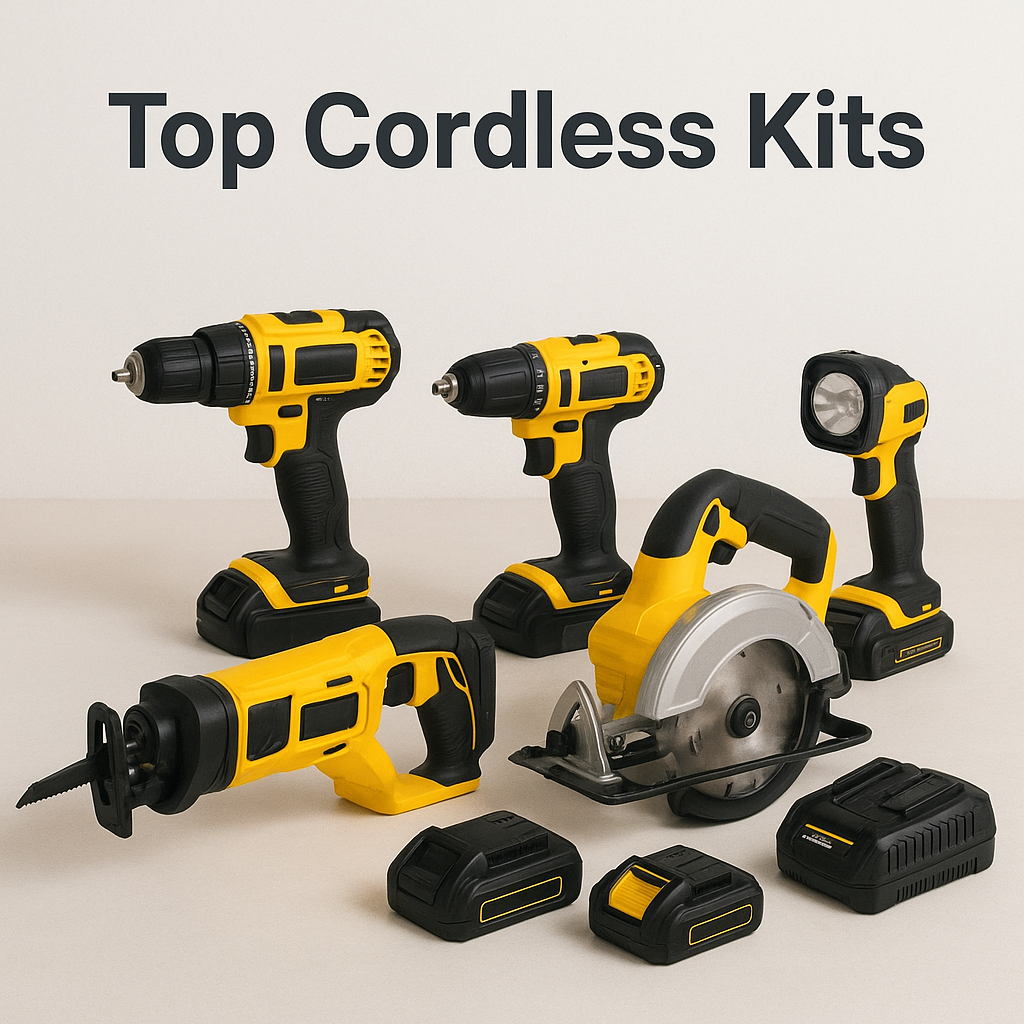Cordless Power Tool Combo Kits FAQ
Find answers to all your questions about cordless power tool combo kits, including top brands, essential tools, features, and buying tips.
Brand & Quality
Makita is praised for long-lasting batteries and compact tools, while DeWalt excels in power and versatility. Both are excellent choices.
Kobalt tools are reliable for DIY and light professional use, offering good value and performance.
Hilti is highly regarded in professional construction for durability, precision, and long-term reliability.
Germany, USA, and Japan produce high-quality tools known for longevity and performance.
No. Both are under Techtronic Industries but operate as separate brands with different product lines.
Some DeWalt tools are manufactured in the USA, but many are produced overseas, including Mexico and China.
Milwaukee produces some tools in the USA, though many are made abroad. Quality standards are consistent globally.
Yes. Bosch is known for precise engineering, durability, and excellent performance.
Ryobi is more budget-friendly and ideal for DIY users, while Milwaukee focuses on professional-grade tools.
Yes. They are affordable, easy-to-use, and suitable for home projects.
Hilti, Milwaukee, and DeWalt are considered the most durable, preferred by professionals.
For heavy-duty or frequent use, premium brands offer better performance, durability, and warranty coverage.

Combo Kits & Features
Yes. Combo kits provide multiple essential tools at a lower cost than buying individually, often including batteries and chargers.
A 15-piece set usually includes drills, drivers, saws, batteries, and accessories for most common tasks.
Most kits include 3–7 tools, but larger sets can have 10–20 tools depending on the brand.
Milwaukee, DeWalt, and Makita offer high-power tools, long-lasting batteries, and robust warranties.
Ryobi, Kobalt, and Black & Decker offer affordable kits for home improvement and light projects.
Consider tools you need, battery type, voltage, brand reliability, and included accessories.
Most quality kits include at least one battery and charger; always check product descriptions.
Some brands allow individual purchases, but buying a kit is usually more cost-effective.
Yes. Kits save money, include compatible batteries, and provide a complete set of essential tools.
A reliable kit typically costs $200–$600 depending on brand, number of tools, and battery capacity.
Cordless tools offer portability, flexibility, and convenience, allowing work anywhere without cords.
Battery life varies, usually 30 minutes to a few hours per charge. High-capacity batteries last longer.
Generally no. Most batteries are brand-specific for safety and performance.
Keep tools clean, charge batteries properly, store them in a dry place, and perform regular inspections for wear.
Yes. Brushless motors are more efficient, last longer, and provide better power-to-weight ratios.
12–20V is common for light tasks, while 18–60V suits heavy-duty or professional use.
Compact tools are lighter and portable but usually slightly less powerful than full-size models.
Charging varies from 30 minutes to several hours depending on battery type and charger.
Look for multiple tools, lithium-ion batteries, brushless motors, ergonomic design, and warranty coverage.
Yes. High-quality cordless tools from brands like Milwaukee or DeWalt are designed for professional use.
Drill, impact driver, circular saw, reciprocating saw, flashlight, batteries, and charger are common essentials.
For most tasks, yes. Corded tools may still be preferred for prolonged, high-power work.
Makita, DeWalt, and Milwaukee kits with drills, saws, and sanders are ideal.
Buying & Warranty
Yes. They can save money and often come with warranties if bought from reputable sellers.
Look for seasonal sales, bundle discounts, online promotions, and authorized reseller offers.
